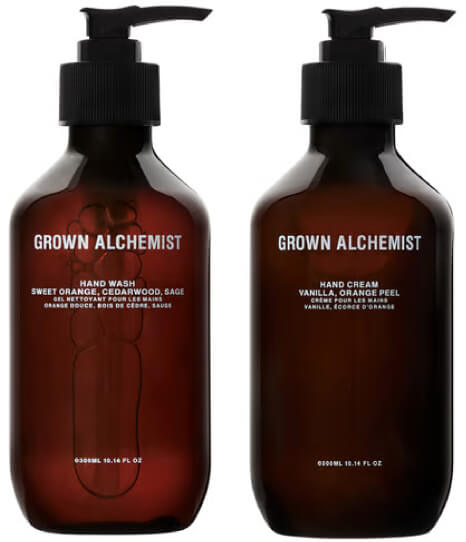[ad_1]
Curing and Preventing iPhone Thumb

Photo courtesy of Sandra Semburg

Hypothesis and Emerging Research
A colleague at work asked me if I knew anything about texting thumb or hand pain associated with texting. I didn’t, although my thumb and wrist do hurt after a few days of full-time keyboarding, so I asked a few experts. The consensus was that it’s doing the same movements over and over on our phones, tablets, and computers that causes repetitive stress injuries.
The pain can be in the thumb, fingers, or wrist, and there may or may not be inflammation. I was cautioned that if there’s sharp or chronic pain, see your hand doctor, chiropractor, or physical therapist. Certain kinds of pain—such as with a visible bump on the palm—may require specific treatment. But keep in mind that braces, anti-inflammatory cortisone injections, and surgery are not magic bullets.
If you can, take preventive measures before developing chronic pain, because it’s easier to prevent hand pain than to cure it. The first thing everyone said was: Put the phone down when possible and use dictation. Text less and take breaks to let the tissue bounce back.
3 Approaches for Dealing with Texting
Thumb and Hand Pain
There was overlap between their recommendations, but each expert provided a unique perspective.
Physical Therapy for Thumb Pain
I’ve recovered from several new (foot) and old (neck) injuries with the help of my super smart physical therapist, Cindy Mack, DPT. About texting thumb, she says, “The main treatment goal is to get inflammation down and to strengthen the muscles of the thumb and wrist in order to build stability into the hand so it can tolerate high amounts of work.”
Working with a PT to build strength and range of motion is what we do for other injured body parts, so why not do the same to build well-functioning hands?
Home Hand Therapy for Thumb Pain
My amazing chiropractor, Marie Royer, DC, was a kid when she started fixing backs. She thinks holistically, and I go to her for all sorts of aches and pains. One type of thumb pain Royer has worked with is at the anatomical snuff box. When you flex your thumb, this is where the two tendons running from the wrist to the thumb form a little bowl on the inside of the wrist. It seems the bowl was used for snorting snuff—a mixture of ground tobacco and scented oils.
Here are Royer’s recommendations:
-
Start the day with a warm-up, literally, with a heating pad or a soak in Epsom salts to boost healing circulation. End the day with a cold pack for about 15 minutes to sooth inflammation.
-
Or, especially for the snuff-box area, Royer likes contrasting hot and cold treatments in the morning and evening: two minutes in cold, two minutes in warm, two minutes in cold, two minutes in warm, two minutes in cold. That’s five cycles starting and ending with cold. The goal is to try to pump the swelling out by alternately constricting and dilating blood vessels. You could also do this contrast treatment midday along with a morning warm-up and evening cooldown.
-
Stretch three times a day: Spread your fingers to stretch the hand gently without forcing it, while relaxing the arm and shoulder and breathing deeply.
-
Stretch passively by using your other hand to massage and stretch the thumb and wrist.
-
Stretch the forearm. Stand up with your palms on a table and your fingers pointing toward you. Be gentle and hold for about 20 seconds. Repeat this with the backs of the hand on the table, especially if you spend a lot of time at a keyboard.
Holding Your Phone Thoughtfully to Prevent Hand Pain
Erik Peper, PHD, a professor of holistic health at San Francisco State University, has helped me understand a lot about posture, body position, and ergonomics. He points out that holding the phone in the same position for long periods of time without a break is a problem. Hand muscles are contracted continuously without the intermittent periods of relaxation that are needed for blood flow and rejuvenation. And it’s not just the muscles in the hands but those in the arms, shoulders, and neck that tense when you’re holding up the phone and bending forward to see it.
“If you have pain in your thumb, you brace and tighten your shoulders protectively,” Peper says. “And you don’t realize you do that.” He says that trigger points in chronically tight necks and shoulders and on the top of the arm, just below the elbow, can cause pain down the arm and all the way to the hand.
If there’s a feeling of urgency, of texting quickly, then the sympathetic nervous system is stimulated, which activates trigger points even more.
Here are Peper’s suggestions:
-
When you’re sitting, support your elbows.
-
When you’re lying, use a pillow to provide support for your arms so your shoulders can relax.
-
It’s natural to be vigilant and hold your body stiffly when you are being observed. Find a position where your body won’t automatically be on guard and will feel safe, such as with your back against a wall.
-
Take breaks. Put the phone down or in one hand. Roll your shoulders and look into the distance. “You want to roll your shoulders up and back and then let them drop down,” Peper says. “Let the shoulders drop even more and you’ll feel your arms and hands relax downward. And looking into the distance lets your eyes relax, which helps the neck and shoulders relax.”
-
He suggests giving yourself little hand massages in the morning when the fingers may be stiff: “Massage your hands and arms, take a breath, feel your shoulders relaxing. But don’t wait till the end of the day when it’s painful.”
-
Peper referred me to detailed instructions from a sports therapist on how to massage trigger points causing hand pain.
Addendum: Inflammatory Triggers
I’ve noticed that my symptoms flare up if I eat dairy products, which I seem to have some sort of intolerance of. And my colleague noticed that her pain flares up the morning after a glass or two of red wine. Alcohol is inflammatory. Are there triggers associated with your symptoms?
For Your Hand Massage:
Two Rich Creams and A Wonderfully Scented Oil
-
 LIHA
LIHA
IDAN OIL
goop, $55Use this versatile tuberose-infused coconut oil for massage, dry hair, or moisturizing.
SHOP NOW -
 Grown Alchemist
Grown Alchemist
Hand Wash and
Hand Cream Twin set
goop, $70This luxurious hand cream—with rose hip, tangerine, and sea buckthorn oils—comes with an equally loaded hand wash.
SHOP NOW -
 goop Beauty
goop Beauty
GOOPGENES Nourishing Hand Cream
goop, $25/$23 with subscriptionShea butter and evening primrose oil for soothed, smoothed skin.
SHOP NOW
Related Reading
Preventing Screen-Time-Induced Headaches and Neck Pain
3 Effective Ways to Improve Your Blood Circulation
This article is for informational purposes only. It is not, nor is it intended to be, a substitute for professional medical advice, diagnosis, or treatment and should never be relied upon for specific medical advice. To the extent that this article features the advice of physicians or medical practitioners, the views expressed are the views of the cited expert and do not necessarily represent the views of goop.
[ad_2]
Source link

